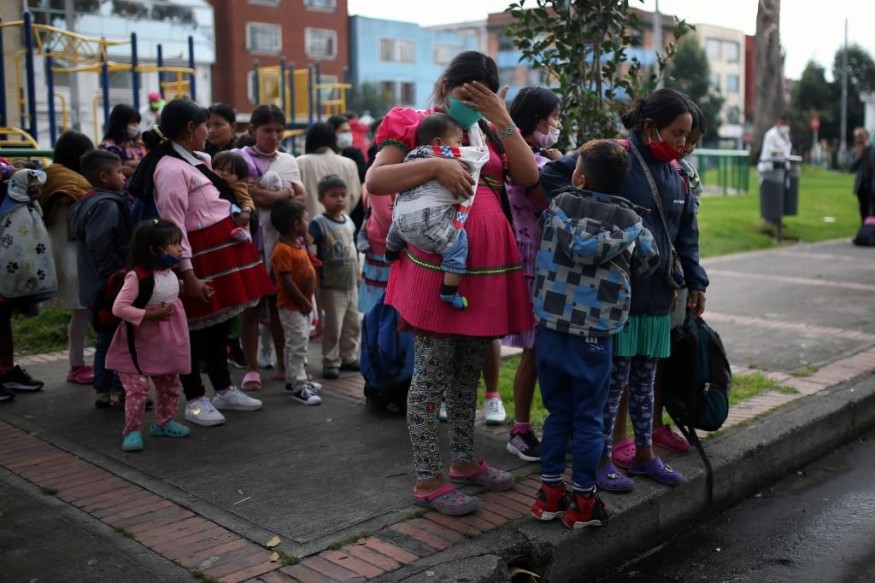Venezuelan Refugees in Colombia Face Eviction Amid the COVID-19 Quarantine

A 24-year-old Breyan Romero was obligated to vacate the hostel in downtown Bogota, which he was renting when he could not pay for the everyday rent amounting to $3. Using a walker because of his paralyzed legs, Romera arrived in Bogota, Colombia two years ago from his Venezuela, in the hope of finding a better life there.
In order to survive every day, he was selling biscuits on the streets, and as the days were quite a struggle, Romero was able to earn adequately to put food on the table and pay his daily rent.
However, recent days have become tough for this Venezuelan, and many other people in Colombia, with 19-day quarantine across the nation, in place to assist in stopping COVID-19 from spreading fast. Relatively, the streets have turned deserted and the "informal workers" got forced to remain at home or indoors just like everyone else.
Moreover, 39-year-old Milsen Solana, who came from Tachira, a Venezuelan border state, sold empanadas and coffee on the busy streets of Bogota before the start of quarantine on March 24.
At present, she resides in the same apartment block with her spouse and two kids, where Romero lived. Solana is now worried it may take a while before she gets the chance to sell again, not to mention, her family having less food as their supplies are running low these recent days.
Almost 1.8M Venezuelan Refugees and Migrants in Colombia
Romero said the landlady took his phone because he failed to pay his last rent. After his eviction, the former biscuit seller went "outside the blocks of apartments where" he needed to move in along with his cousins who added, their last supplies of food "are running out."
To date, Colombia hosts almost 1.8 million Venezuelan refugees and migrants who, in recent years, left their country, escaping a collapsing economy, shortages in medicine and food, political crisis and poverty.
United Nations High Commissioner for Refugees (UNHCR) head in Colombia, Josef Merkx said, the UNHCR does not have the accurate quantities on informal Venezuelan workers, although he added, what they know is that nearly 60 percent of the 1.8 million Venezuelans in Colombia do not have regular status.
Meanwhile, a study that the Externado University in Bogota released in February came out with a result that only 25 percent of the total number of Venezuelan workers there has a contract.
Increase in Prices of Commodities
What's even making the lives of the Venezuelans and many others in Colombia is the increase in prices of commodities. They said a pound of chicken has now a marked up price of 4,500 Colombian pesos ($1.5) from 3,500 ($0.90).
Meanwhile, a pack of orange is now priced at 3,400 Colombian pesos ($0.85) from 2,800 ($0.70). A piece of egg, on the other hand, amounts to 600 Columbian pesos ($0.15) from 300 ($0.07).
These small changes, as the economists have observed, have a big impact on the poor people's lives especially now that they are unable to work.
Subscribe to Latin Post!
Sign up for our free newsletter for the Latest coverage!
© 2025 Latin Post. All rights reserved. Do not reproduce without permission.















